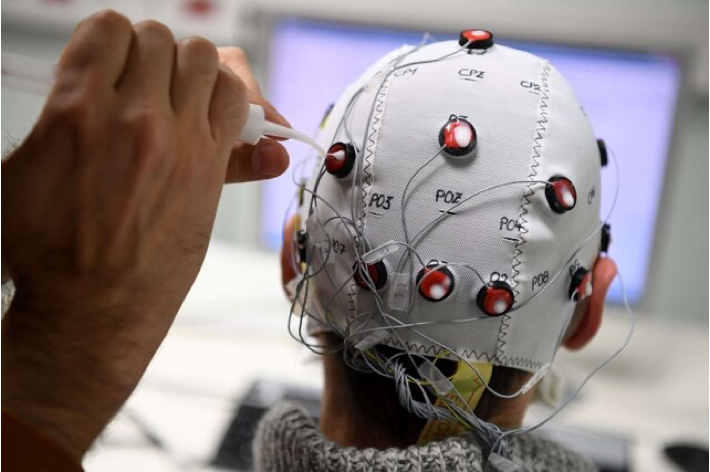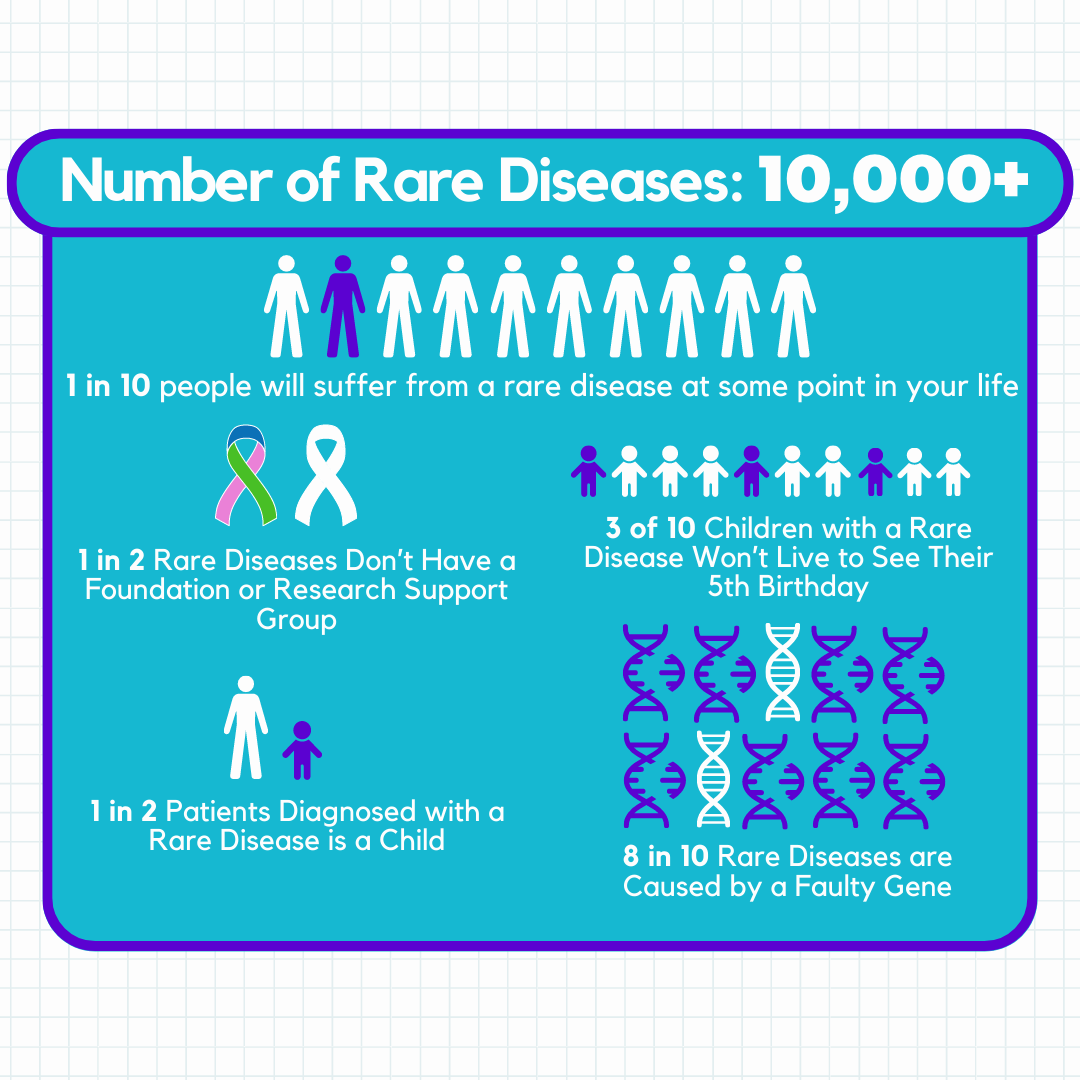Project 8p Research Newsletter - March 2023
💡Research Question of the Month
How do you imagine assistive technologies could improve the lives of 8p Heroes?
Use the comments section at the bottom of the page to share your thoughts!
🔬Research Highlight - New to Project 8p in 2023
The Project 8p Two Year Research Plan, first published last year, will undergo regular reevaluation and revision as our research projects provide new insights into the disease, as technological advances are made, and as the wants and needs of 8p heroes and their caregivers evolve. Later this year, a new research segment on Assistive Technology will be added to the plan with the goal of partnering with early-stage companies developing augmentative devices and neural interfaces to evaluate and test new technologies that have the potential to improve the lives of 8p heroes in the near term. We hope you’ll share your thoughts on this new research segment as we work to formalize it in the coming months.
Another exciting development is our plan to launch Project 8p Labs. The goal of Project 8p Labs is to partner with other rare disease foundations to convene scientists in a shared incubator lab where patient families drive research aims and own materials and intellectual property. Rare Disease groups are increasingly frustrated with the lack of urgency and agency in conventional research settings, and some groups - like Chordoma Foundation and To Cure a Rose (Everlum Bio) - have already made the leap to their own lab spaces. Project 8p Labs will focus on efforts like productionizing screening assays and translating research from academia to the clinic, while continuing to partner closely with patient families and academic researchers.
If you’d like to learn more about Project 8p’s plans for 2023, Dr. Ethan Perlstein, Project 8p’s Research Director, discussed these new developments and more during the February Research Roundtable. You can watch a recording of the meeting on the Project 8p YouTube channel .
Keep up with all of Project 8p’s exciting work by subscribing to this newsletter!
🦓 Rare Disease Day 2023
Rare Disease Day was February 28th, with events around the world highlighting the not so rare nature of rare diseases. In Canada, Project 8p’s CEO and President, Bina Shah, and her co-founders of the Commission on Novel Technologies for Neurodevelopmental CNVs gave the keynote address at Rare Disease Day @ SickKids in Toronto. Their address highlighted the Commission’s team science approach and shared neurogenetics infrastructure, with data collection platform and biorepository, to make it easier for clinicians and researchers to understand CNVs and plausible common pathways. You can watch a recording of the address below.
In honor of Rare Disease Day 2023, please consider a donation to support the work of Project 8p.
📄 Recent Articles and Publications
Let us know if you’ve read or published a paper or article recently that you think the 8p community should know about!
Neuron devices: emerging prospects in neural interfaces and recognition. Wang, Y. et al. Microsystems & Nanoengineering. 8, 128 (2022). https://doi.org/10.1038/s41378-022-00453-4 (Open Access)
This recent review article summarizes the start-of-the art of brain-computer devices for research and diagnostics, as well therapeutic applications. We plan to explore many of these in our forthcoming Research Segment on Assistive Technologies.
Mitochondrial Dysfunction in Down Syndrome: From Pathology to Therapy. Tan, K.-L. et al. Neuroscience. 511 (2023) https://doi.org/10.1016/j.neuroscience.2022.12.003
Mitochondrial dysfunction is a hallmark of neurodegenerative diseases and is frequently found associated with neurodevelopmental disorders. This review focuses on mitochondrial dysfunction in Trisomy 21, including the role of mitochondria in the brain, gene dosage effects on mitochondrial function, and mitochondria-targeted therapies for mitigating dysfunction. As we saw in our February Research Roundtable presented by Dr. Nicoleta Moisoi, we are still in the early stages of understanding mitochondrial dysfunction in 8p, but the wealth of research into disorders like Trisomy 21 will provide a strong foundation for hypothesis generation when it comes to understanding and treating other CNV disorders like 8p.
Characterization of mitochondrial and metabolic alterations induced by trisomy 21 during neural differentiation. Prutton, K.M. et al. Free Radical Biology and Medicine. 196 (2023). https://doi.org/10.1016/j.freeradbiomed.2023.01.009
During stem cell differentiation metabolism shifts from glycolysis to oxidative phosphorylation. Here, Prutton et al. show that Trisomy 21 iPSCs are not as adept at making this metabolic shift, and that the cells mature into NPCs earlier than control cells. In our February Research Roundtable, Dr. Moisoi showed that 8p fibroblasts produce less ATP than control lines when grown on galactose, suggesting a similar failure to upregulate mitochondrial metabolism may be a general feature of aneuploidy.
Prevalence and Penetrance of Rare Pathogenic Variants in Neurodevelopmental Psychiatric Genes in a Health Care System Population. Shimelis, H. et al. The American Journal of Psychiatry. 180, 1 (2023) https://doi.org/10.1176/appi.ajp.22010062 And accompanying editorial by Dr. Santosh Girirajan and Deepro Banerjee: https://doi.org/10.1176/appi.ajp.20220934 (Open Access)
Shimelis et al. assessed 90,000 individuals in a health care system cohort for variants in 94 genes known to be associated with neurodevelopmental or psychiatric features and found that only 34% of individuals carrying a pathogenic variant had a corresponding diagnosis. The limited penetrance of these variants supports an outsized role for the genetic background on which they occur when it comes to determining pathogenicity, highlighting the complexity in elucidating neurodevelopmental disease etiologies.
“Patients are the Platform”. Dr. Ethan Perlstein, Perlara’s Cure Odysseys Subtack. February 24th, 2023
In this essay Dr. Perlstein argues that it’s easy for biotech and pharmaceutical companies to deliver a platform, but much harder to deliver a medicine, and that the industry would do well to recognize that patients are the discovery, clinical, and commercial platforms.
💜 Family Corner
With wet lab research underway and data analysis beginning, we are developing a fifth “segment” of our research plan in order to accelerate the “meaningful life today” part of our mission statement. With Bina’s visionary plans and Ethan’s experience in the Spinal Cord Injury field, we have begun to identify partnership opportunities with companies or software working on the next generation of Assistive Technologies. One practical existing example is AAC devices for speech.
Project 8p seeks to be a medical pioneer in Assistive Tech. Imagine a device that can be taken on and off like a helmet. It detects brain waves noninvasively and transmits the data to AI-powered software that renders an image of what the 8p hero is thinking on an iPad screen held by their caregiver. We think this possibility is right around the corner.
To our readers, send us any ideas, companies, introductions in Assistive Tech – sometimes also referred to as Augmentative Tech – that could help 8p heroes.
📆 Upcoming Events
8p Research Roundtable, Rarebase, March 27th 1:30 PM EST. Email whitney@perlara.com if you would like to attend.
Gordon Research Conference on Functional Genomics of Human Brain Development and Disease April 2nd-7th, Ventura, CA. Project 8p’s Research Director, Dr. Ethan Perlstein, will be there, let us know if you will be too!
Get in touch with us on social media!
FACEBOOK | INSTAGRAM | TWITTER | LINKEDIN | YOUTUBE
Founded in November 2018 as a 501(c)(3) nonprofit, Project 8p Foundation works to empower a unified community for chromosome 8p heroes for a meaningful life today while accelerating treatments for tomorrow.





